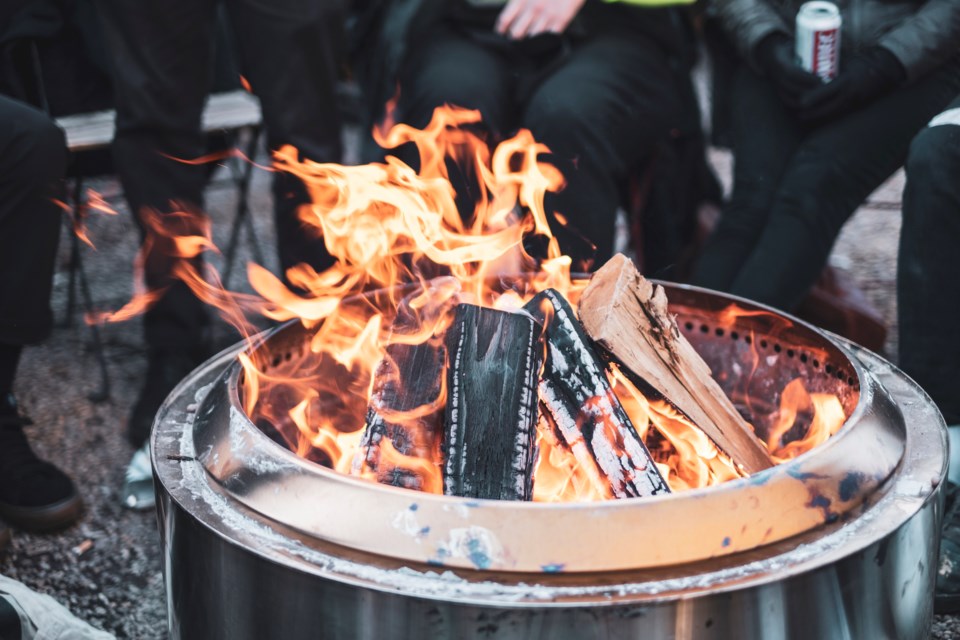With this summer being extremely dry, the Moose Jaw Fire Department reminds residents — both urban and rural — to be mindful of activities that could lead to unexpected fires.
Whether it’s barbecues, fire pits or even cigarettes, the fire department is encouraging residents to be aware of their surroundings, especially since July was the driest summer on record in Moose Jaw, said Fire Chief Rod Montgomery.
There is no fire ban in the city, while implementing one wouldn’t be taken lightly since several factors would be considered, he continued. For example, while many people look at what’s happening in British Columbia, Saskatchewan is not the same since forests do not surround most communities here.
To prevent any major outbreaks of fires, residents should keep their properties clean, tidy, and in good shape.
With barbecuing, residents should ensure their device is not located right next to their home — this is a “recipe for disaster” — since most siding is combustible, Montgomery said. Keeping these cooking tools adjacent to the house is a common mistake the department sees regularly.
For residents who smoke, they should put their cigarettes in a metal container. Montgomery noted that some people put their cigarette butts in planters on their decks, which can then catch on fire because of the heat.
Summer is usually the time when homeowners have friends over to socialize in the backyard. Many people have fire pits, and while these devices are allowed, they must be the proper size and in an approved container.
According to the Fire Safety Bylaw, this means fire pits and outdoor fireplaces must be constructed of concrete, clay, brick or sheet metal with a minimum of 18-gauge thickness. The receptacle must also be covered with a heavy metal screen, while the firebox size must not exceed 75 centimetres (30 inches) in any dimension.
There cannot be any combustible or flammable material within three feet (36 inches) of the fire pit or outdoor fireplace, the devices cannot be on the deck, and they must be 10 feet away from the home. Homeowners should also have something nearby to extinguish the fire. This includes water, dry chemicals or foam-based extinguishers.
“It’s about maintaining the proper distances, having the proper device, and just burning what’s there — clean, dry wood — (and) don’t burn garbage (or) don’t burn leaves … that create hazards and excess sparks and embers,” said Montgomery. “Don’t do those things. It’s against the bylaw, and you could be charged.”
The fire department has seen fewer problems with barbecues and fire pits over the years since residents have become more educated and knowledgeable about how to use them, he continued. Yet, some people want to party late into the night — fire pits/outdoor fireplaces are forbidden from 12 a.m. to 8 a.m. — while others use improper wood. If wood smokes, then it’s either the wrong type or it’s wet.
“The big thing is, if it doesn’t feel right, don’t do it,” the fire chief added. “Your safety is a shared responsibility. Look out for your neighbours and be mindful of your neighbours. Do your best to be fire smart.”
Residents with questions about fire safety should visit the City of Moose Jaw website at https://moosejaw.ca if they want to read about tips to prevent fires or to read the Fire Safety Bylaw. They can also contact the fire department at 306-692-2792 or visit its Facebook page for regular tips.
Rural fire concerns
While most of Moose Jaw is green and lush, the rural areas — including Wakamow Valley — are dry, said Montgomery. The fire department has responded to a couple of rural grass fires this summer, which some rural residents unintentionally caused while target shooting.
People who live in on acreages should have a 10-metre fire buffer around their homes, which means not having trees against buildings or allowing leaves to build up, he continued. There should also be a 10- to 30-metre buffer that includes keeping the property maintained, trees trimmed — deciduous trees are preferable — and grass watered.
Maintaining equipment is also important since machines can catch fire if gunk builds up, something the fire department sees occasionally, noted Montgomery. Meanwhile, rural residents should park their machines on gravel roads and have a fire extinguisher nearby or on the machine.
“If you’re doing that and being mindful of everything,” he added, “hopefully we can stop ’em (fires) before they get going.”




